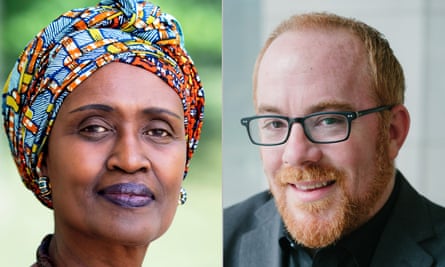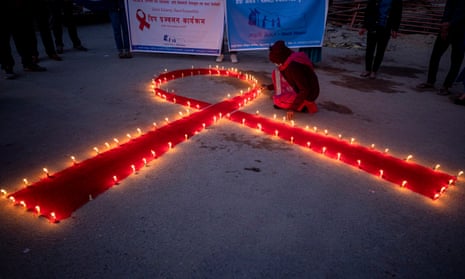In a pandemic, when policy falls short, people die. Amid the growing Covid-19 pandemic and the continuing HIV pandemic, this is clearer today than ever before. From rules on access to testing to the distribution of new medical technologies or the use of criminal law in public health, policymaking is fraught. This World Aids Day, the global Aids response stands on a precipice.
Actions in the next few years will either tip us towards halting HIV, making deaths and new infections rare, or towards a resurgent virus thriving on social faultlines.
We are poorly positioned. No country in the world has fully aligned its national laws and policies with the best HIV science, which is undermining the response. Nevertheless, we we are hopeful because policies can shift quickly. Covid-19 has seen governments around the world pass new policies to respond to a virus with no cure or (until now) vaccine.
The Aids response today is a story of inequalities. A young person in eastern or southern Africa lives in a region with a 38% decrease in new HIV infections since 2010, but one living in eastern Europe or central Asia faces a growing regional epidemic, with a 72% increase in infections. Young people in Haiti have grown up in a low-income country where the rate of Aids-related deaths has declined by 52% this decade and is now lower than in Jamaica, an upper middle-income country where it has increased by 7%.
Science is not the barrier. We have a greater understanding of HIV epidemiology than ever before. Just recently, long-lasting injectable drugs were proven effective at preventing HIV among women. The evidence shows that criminalising sex work, drugs or same-sex relationships does not stop HIV.
However, science means little when laws and policies drive inequality and stop the benefits being reaped.
A new report from the HIV Policy Lab shows the disconnect between what we know and how that is translated into policy. The 2020 Global HIV Policy Report shows that only a handful of countries have aligned even 80% of policies with international standards. Only a third make HIV prevention medicines available to everyone who is at substantial risk. Without that, they cannot put the new evidence on long-acting drugs to work.
Treatment for HIV needs to be simpler to fit people’s lives, and some nations are helping people to limit clinical visits. At least 59 countries provide three months’ supply of medicines at a time while 32 allow six months’ supply. Some have adopted this as a reaction to Covid-19. Many more need to follow suit.

Meanwhile, laws across the world criminalise either same-sex sexual relations, sex work, personal drug use, or HIV exposure/transmission – sometimes all four. Yet there is clear evidence that criminalisation drives people away from HIV services and increases the risks.
Aligning with international policy standards can make all the difference against Aids. Countries in eastern and southern Africa, where HIV rates are falling, have done this more than those in eastern Europe and central Asia, where rates are rising. But even in Africa, more is needed.
In Angola, for example, most people who know they are living with HIV are not accessing treatment. Angola’s leaders changed the law a few weeks ago to decriminalise same-sex sexual relationships – a key move in a context where men who have sex with men face far higher HIV prevalence than the general population.
This is why UNAids is putting more priority on policy. In 2016, the world set a goal of ending Aids by 2030 – we are off track. So the new UNAids World Aids Day report includes new targets. These include a goal that by 2025 more than 90% of countries will have decriminalised sex work, possession of small amounts of drugs and same-sex sexual behaviour. Achieving this goal would have profound benefits.
There are policy lessons to be learned from coronavirus. We know the power of communities and – amid the pandemic restrictions – several countries have allowed more flexible and community-based services. Such innovations make health systems more pandemic-resilient, even in poorer nations.
Pandemics follow the faultlines of our societies. They show us who has power and who doesn’t. With HIV and Covid-19, the burden of death and infections is not evenly spread. Governments have remarkable power to use lawmaking and policymaking as a tool to battle inequality. Now is an opportunity to act to align policies with science to end both these pandemics.
